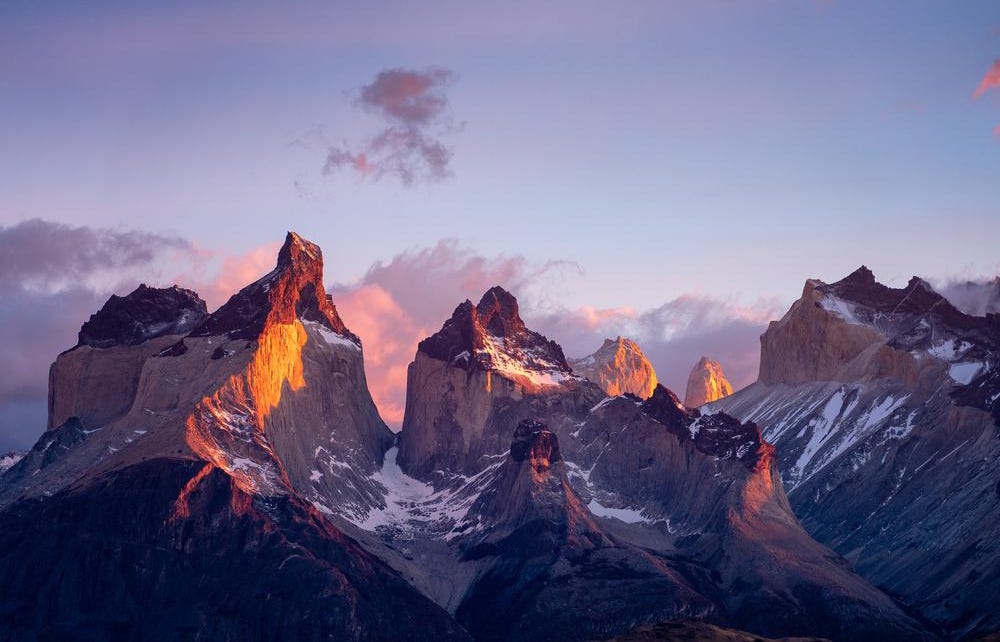.
Travel expert and accomplished book author, Patricia Schultz has happily once again woven her wisdoms and recommended wanderings into an uplifting gem of a new book, Why We Travel: 100 Reasons to See the World (published this month by Workman). First, a bit of background: Schultz wrote the #1 New York Times bestseller 1,000 Places to See Before You Die in 2003, which has since grown into multiple editions and sparked product spin-offs, such as 1,000 Places to See in the United States and Canada Before You Die and 1,000 Places calendars. Her wide-reaching, reader-pleasing brand has also influenced other travel writers, who have penned their own numbered tributes to niche bucket list quests.
.
The timely launch of Schultz’s newest book — which celebrates the joys of journeys, how they enhance us and why we pursue them — is particularly appreciated now. More than two years of COVID-19 pandemic concerns and restrictions isolated us as never before. As countries’ borders reopened, a palpable lust for fresh horizons has spread. Looking forward, Why We Travel appeals to both on-the-go vacationers and armchair travelers, in-person adventurers and virtual explorers. Why We Travel affirms the positive rewards — physical, psychological, emotional and even spiritual — that travel unlocks. This is a feel-good book, easy to breeze through and find sustenance within. A small jewel with big travel ambitions.
Bowing to etiquette: Business women in traditional clothes in Kyoto, Japan.
Gorgeous photography (images shown here are also in the book), helpful insights, essential tips, motivational quotes, detailed diversions and international food highlights fill this attractively designed 186-page hardcover.
Jumpstart Your Own Travel Stories
Compelling sections of the book showcase Schultz’s personal revelations. For example, she describes the day that she conquered her fear of flying, while on safari in Kenya. On a dirt runway in a “toy-sized Cessna with a pilot who looked too young to shave,” she writes, “we set off into the early morning’s golden light with a herd of zebras scattering below us.” The scenery was incredible. Recognizing her familiar wave of nerves, she had a momentous “kind of epiphany” that flying is like magic, requiring you to simply believe it’s real. “You don’t have to understand aerodynamics or what holds an aircraft aloft…. Those butterflies in my stomach were no longer fear, but the sheer thrill of it all.”
.
Embracing serendipity is another Schultz guidepost. In Casablanca, Morocco, for instance, when she was stranded at the airport after a cancelled flight with no air transport until the following day, Schultz was astonishingly welcomed into the home of a taxi driver, whose wife, mother, sisters and neighbors extended their arms for her to join their customary Friday night meal. Schultz is passionate that “travel teaches us empathy, humility, patience, gratitude and how to enjoy experiences over things. It is the ultimate classroom without walls.”
Walk through history: Via Appia, the Roman road built in 312 BC, near Rome.
No passport? No problem, pivots Schultz, who points to outstanding U.S.A. destinations, especially nature sojourns. How to be swept away without leaving your sofa? She includes a lineup of iconic American films set in far-flung locations.
Brilliant color: Grand Prismatic Spring in Yellowstone National Park, Wyoming.
And then there are other-worldly expeditions that stir enormous allure. About Antarctica, Schultz remembers being dressed “in layers of cold-weather gear. We paddled kayaks to marvel at towering icebergs the size of ten-story buildings…. We saw humpback whales and visited remote penguin colonies whose comical residents outnumbered us tens of thousands to one. Being in Antarctica feels like you have been dropped off on a distant planet — and home is so very far away.”
Change Your View to See Anew
“One of the beauties of travel is that you can slip on different lifestyles” to try out new perspectives, encourages Schultz, who, for example, praises atypical accommodations, which imbue time-travel escapes or deep cultural dives. These lodgings can add a layer of uniqueness to your trip and conjure a distinct sense of place. So instead of booking a regular hotel, contemplate a stay at a temple or shrine in Japan; a baronial castle in Ireland or the United Kingdom; a maharajah’s residence in Rajasthan, India; a cave dwelling in Matera, Italy; a nomadic yurt camp in Mongolia; or a lighthouse on the Northeast or Northwest U.S.A. coast.
Reawaken childhood fascinations: Bran Castle (aka Dracula’s castle) in Romania.
Among Schultz’s stellar reasons to enlarge your worldview: the knowledge that comfort and luxury come in all shapes and sizes; the awareness that fast and easy aren’t always the optimum choices; the realization that we are all more alike than we are different. One of the most prized outcomes of travel are kindred spirits you meet along the way. Schultz gently urges you to realize that there is more than one avenue to get to where you’re going; to grasp that karma is real; to be grateful for what you have donenot regretful for what you haven’t; to carefully listen to your intuition; to be assured that when you think you have exhausted all possibilities, think again; and to observe that courtesy is contagious.
Stand in Awe of Genius
Says Schultz: Anyone who tells you that it’s a small world, hasn’t traveled. Machu Picchu, Peru.
Witness, if possible, spectacular sites that “are testaments to human ingenuity and artistry, true treasures that hold us in thrall and still possess the power to stop us in our tracks today,” Schultz enthuses. She rejoices about the Great Pyramid of Giza in Egypt; Taj Mahal in Agra, India; underground churches of Lalibela, Ethiopia; archaeological site Petra, carved into pink sandstone cliffs in Jordan; Hagia Sophia, nearly 15 centuries old, originally built as a Christian cathedral in Istanbul, Turkey, then converted to a mosque, declared a museum and reclaimed as a mosque; Peru’s Nazca Lines — pre-Columbian geo-glyphs etched into desert sands; and the masterpiece, 17-foot, 12,478-pound, marble statue of David, sculpted from 1501 to 1504, by a youthful Michelangelo, in Florence, Italy.
Pause for sunset splendor: The Great Pyramid of Giza in Egypt.
Be The Gatekeeper of Your Own Dreams
“Travel is food for the soul,” muses Schultz. “Wherever you go, however you travel, allow it to enrich you, connect you to others, challenge your preconceptions and open your head and heart. If you do, you’ll understand why we travel and why we should never stop. It is an investment in ourselves and makes us better people. When we get home, home is still the same, but we have changed. And that changes everything.”
Already thinking about your holiday-giving ahead? Why We Travel would be a thoughtful gift for active globetrotters and wishful wanderers.





